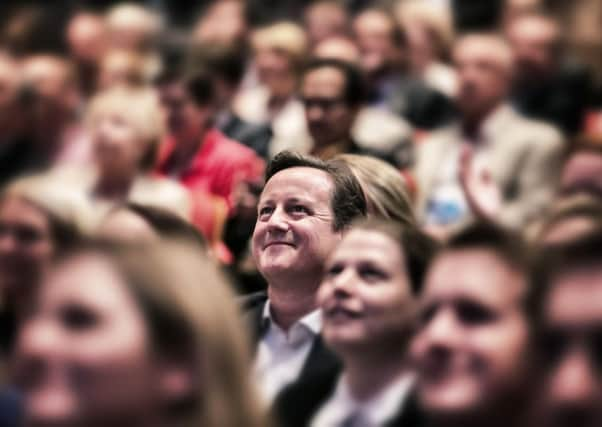David Maddox: Tories are riding a wave of optimism


Yet the atmosphere in Birmingham is remarkably upbeat. Chancellor George Osborne struggled to smile, but he always does, while the grin on David Cameron’s face does not look even slightly forced. In fact, for a Prime Minister who is supposedly losing his party, he is being greeted with spontaneous standing ovations and cheers wherever he goes.
The comparison with Labour in the Manchester gloom last week is stark. Ed Miliband and his party were utterly downcast, bereft of ideas and dead on their feet. Labour found it hard even to celebrate the Scottish referendum success, while the Tories have greeted Scottish leader Ruth Davidson as a conquering hero wherever she goes.
Advertisement
Hide AdAdvertisement
Hide AdThe Conservatives happily point out that they won their areas in SNP heartlands such as Perthshire and Angus, while the referendum was almost lost in Labour areas like Glasgow.
Everything logically is in Labour’s favour, yet it is clear that of the two main parties, it is the Tories who feel fighting fit and expect to win.
The reason for this can only be explained because, of the two parties, the Conservatives have a clear idea of where they are going and the message they will be taking to people’s doorsteps.
In terms of the economy, the party has been unwavering with Osborne’s plan A, and now it appears to be working. They also know their “war on welfare” is playing well with key voters, who will be the ones that make the difference on 5 May next year. Most of all, they know the party is planning a referendum on EU membership.
In contrast, it is hard to say what Labour would do with the economy, welfare and Europe, and actually last week’s botched conference made it even more difficult for them. Mr Miliband will be having nightmares for months to come about forgetting the deficit section of his speech.
The Tories, of course, do have problems, particularly on the European question and the threat posed by Ukip. And Mr Cameron is probably not the ideal leader for most of the membership.
But while the electoral system easily favours Labour – and a governing party has only once increased its majority (Margaret Thatcher in 1983) – there seems to be no doubt this week that the Tories expect to win at the next general election.